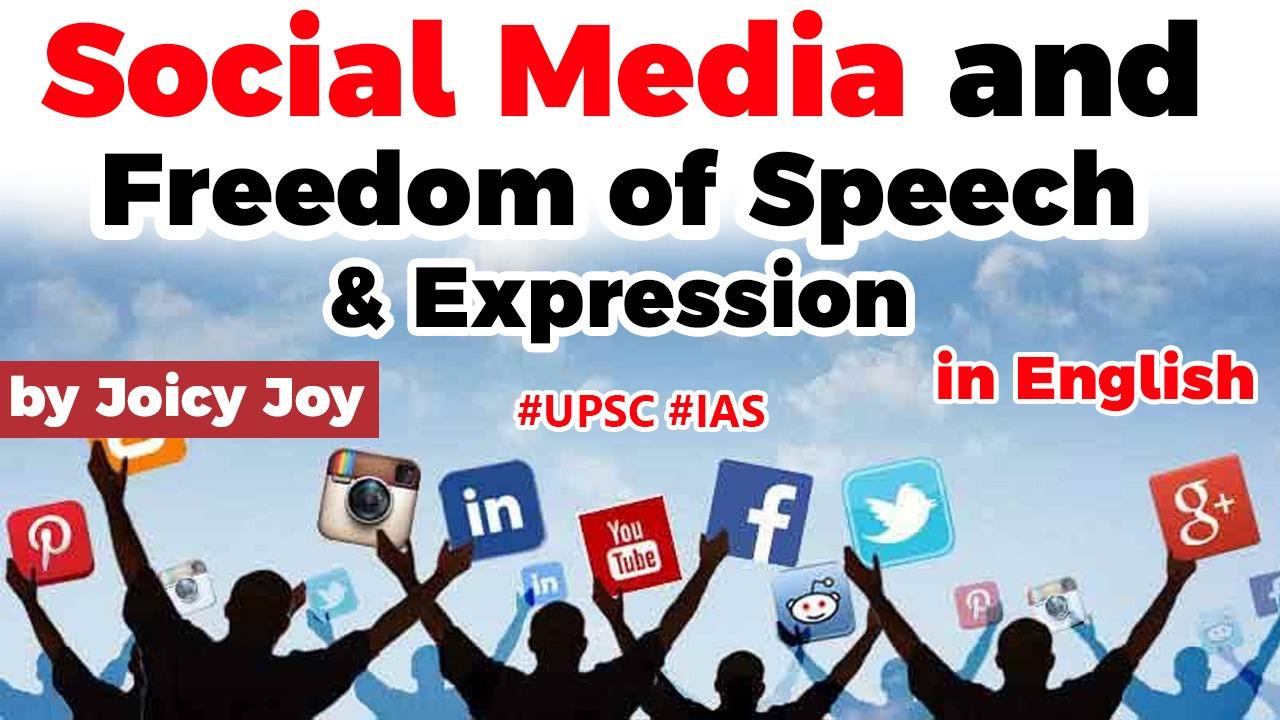Table of Contents
CURRENT AFFAIR
- In two judgments on 9 and 10 January, Tripura High Court upheld freedom of speech and expression — specifically in relation to social media — under Article
DETAILS
- The High Court of Tripura has held that posting on social media was virtually the same as a fundamental right applicable to all citizens, including government
- It also asserted that government servants are entitled to hold and express their political beliefs, subject to the restrictions laid under the Tripura Civil Services (Conduct) Rules, 1988.
Key Points
- In another significant judgement, the High Court of Tripura ordered the police to refrain from prosecuting the activist who was arrested over a social media post where he criticised online campaign in support of the Citizenship Amendment Act (CAA), 2019 and warned people against it.
- The HC held that these orders are in line with the very essence of the Indian Constitution.
Other Recent Judgements
- The Supreme Court of India also gave judgment on the internet shutdown and curbing of other civil liberties in the Jammu and Kashmir. It upheld the Right to access the Internet and released guidelines on imposition of section 144 of CrPC.
- Recently, the Kerala High Court, in Faheema Shirin v. the State of Kerala case, declared the Right to Internet Access as a fundamental right, forming a part of the right to privacy and the right to education under Article 21 of the Constitution.
Freedom of Speech And Expression
- Freedom of speech and expression is broadly understood as the notion that every person has the natural right to freely express themselves through any media and frontier without outside interference, such as censorship, and without fear of reprisal, such as threats and persecutions.
- Freedom of expression is not absolute and carries with it special duties and responsibilities therefore it may be subject to certain restrictions provided by law.
Restrictions
- (a)Sovereignty and integrity of India
- (b) Security of the State
- (c) Friendly relations with foreign States
- (d) Public order
- (e) Decency or morality
- (f) Contempt of court
- (g) Defamation
- (h) Incitement to an offence
Cyber Laws of India And Social Media
- There is no specific legislation in India which deals with social media.
- There are several provisions in the existing so-called cyber laws which can be used to seek redress in case of violation of any rights in the cyber space, internet and social media.
Hate speech
- Hate speech is speech that offends or attacks people on the basis of race, ethnicity, national origin, religion, gender, sexual orientation, disability, disease, or other
Internet shutdown
- Internet shutdown is a violation of fundamental rights.
- Internet access is a basic right that must not be
- A blanket shutdown can be dangerous because it fails to distinguish between the legal and illegal aspects of the action.
- It isn’t productive and leads to social & economic
Right to Life & Personal Liberty
- ‘Right to life and personal liberty’ as a fundamental right is provided by the constitution of India under Article 21.
- It guarantees that no person shall be deprived of his live and personal liberty except in accordance with the procedure established by law.
- Right to life and personal liberty is available to the citizens as well as non-citizens.
- In the constitution of India, the Freedom of speech and expression:
- [A] Is enshrined in Part III
- [B] Is absolute
- [C] Can not be curtailed by legislation
- [D] Can be suspended in emergency
Latest Burning Issues | Free PDF






















 WhatsApp
WhatsApp